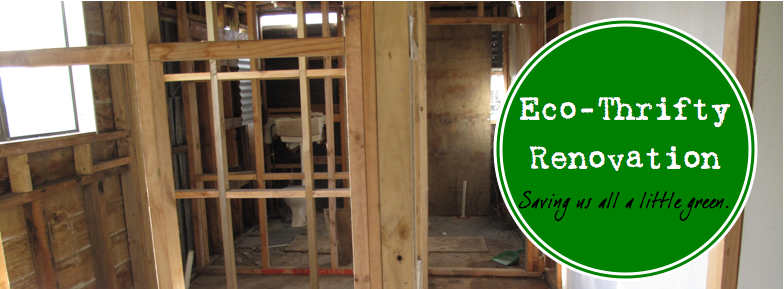My best description of eco-design is this: it works with
nature, not against it; it is holistic, not reductionist; it takes advantage of
free and abundant energy flows; and, it is good for people and the environment.
My wife, Dani, and I have demonstrated the power of eco-design through our
renovation and edible landscaping efforts in Castlecliff. The Wanganui District
Council has demonstrated what happens when you ignore eco-design through the
ongoing wastewater treatment plant fiasco, which has turned out to be costly,
polluting, and unhealthy.
While there are many forms of eco-design, one that appears
to have established itself in New Zealand and Whanganui is permaculture. Like
all eco-design systems, permaculture is science-based, but since its founding
in the 1970s permaculture has also been grounded in ethics. The permaculture
ethics are: care for the earth; care for people; and, share surplus resources.
Those people who identify themselves as permaculturists are
ethically-bound to care and share – not so different to the teachings of Jesus,
Mohamed, Buddha, and the prophets of other religions. In the case of practicing
permaculturists, sharing surplus resources can take many forms. For example,
surpluses may be fruits and veges, nuts, seeds, seedlings, saplings, or even
funding for a community project. Many readers will be familiar with the
generosity of local permaculturists Mark Christensen, Melinda Hatherly, Murray
Jones, and Nolene Landrigan.
For my part, surpluses do not include seedlings, saplings,
or funding, but rather enthusiasm, experience, and knowledge. For example, I am
happy to share the story of our
eco-thrifty renovation with readers of the Chronicle on a weekly basis because it is a way for me to care for people and the earth. In other words, when
readers adopt ideas from this column, they can save resources and money, live
healthier lives, and have less impact on the environment.
Additionally, Dani and I operate The ECO School, which is
dedicated to providing high quality sustainability education to anyone who
wants to learn, not just those who can afford to learn. E.C.O. is a Spanish
acronym formed from the school’s name, La Escuela (the school) Ecologica, Cooperativa, y
Obrera – Ecological, Cooperative and
Working.
Along with the individuals mentioned above, and other local
permaculturists, we believe that community sustainability and resilience is
best achieved through holistic, cooperative efforts that are open to all those
who want to be involved. Over the last two years The ECO School has partnered
with dozens of community organizations, religious groups, local businesses,
schools, adult learning centres, and individuals on a wide range of projects.
Like those successful programmes, our next project is a
cooperative effort involving local permaculturists eager to share examples of how they care for the earth and for people. This Caring and
Sharing Permaculture Weekend takes place the 20th-22nd of September.
It kicks off with a shared meal at the Quaker Settlement on
Friday the 20th at 6 pm followed by a speaker at 7:30 pm. Saturday
and Sunday will offer field trips, workshops and presentations. All events are
open to the public and any type of koha will be accepted.
Whanganui Permaculture Weekend
Earth Care ~ People Care ~ Fair Share
20th-22nd
September, 2013
Please consider koha for each
event, kia ora.
Friday 20th
September
6:00
Shared Meal at Quaker Settlement. 76 Virginia Rd. Wanganui
7:30
Presentation on Permaculture Projects on the Settlement
Saturday 21st
September
9:00
– 1:00 River Traders Market, Taupo Quay, Whanganui
Programme
below takes place at the Whanganui Resource
Recovery Centre Education Room, 83 Maria Place, Wanganui
10:15 – 10:45. Tour of the new Whanganui Resource
Recovery Centre (SWT) and Sustainable Whanganui Trust, Whanganui Environment
Base (WhEB).
11:00 – 11:45. Discussion on 'Designing for Generosity'. Vanessa
Witt.
12:00
- 12:45. "Roots and Shoots: Growing Community
Organisations in the Spirit of Permaculture" Sharon Stevens, RECAP fdr.
Chairperson.
1:00 – 3:30. "Community Finance
and Savings Pools: The Game!" Phil Stevens, Living Economies Educational
Trust, Chairperson.
4:00 – 5:30. Live Food Workshop - Rachel Rose
6:00
- Shared Meal and Sharing Stories - WhEB rooms
Sunday 22nd
September
Rural and Semi-rural Property Tours
Please register for addresses and pooled transport
meeting time & place. Melinda Hatherly – treelife@xtra.co.nz or phone 342 5904.
9:30 - Dave Aislabie's Organic Gardens and
Orchards; Kai Iwi
11:30 - Mark
Christensen's Garden & Orchards; Springvale
1:30 - Richard Thompson & Laurel
Stowell's property; Papaiti (Aramoho)
3:30 - Pete Hewson's property 'The
Hill' Durie Hill.
Urban Property Tours - Castlecliff Gardens
Meet
11:00 am at 10 Arawa Place for map
and schedule.
Please join the Permaculture Wanganui Facebook
page!





No comments:
Post a Comment